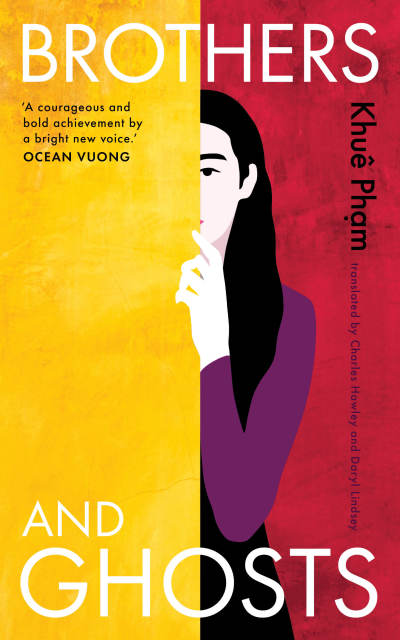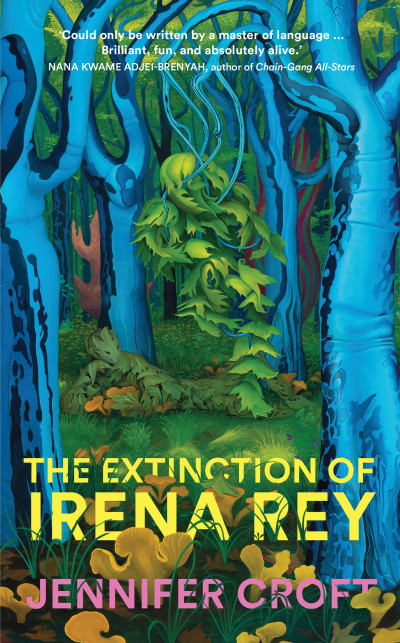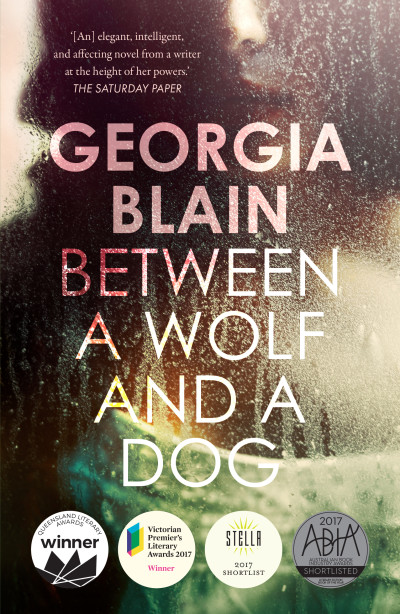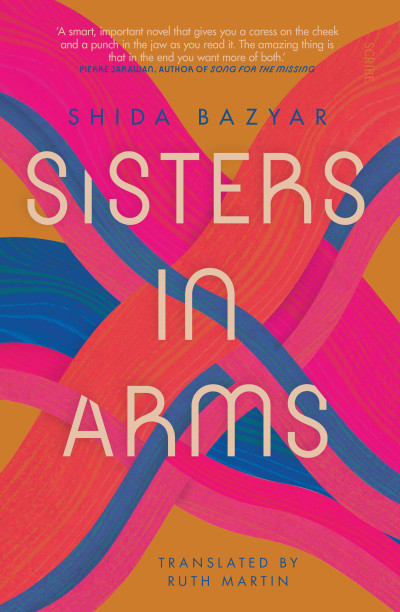‘[Laura Jean McKay] has another sense, an extra one that we mortals do not have. She sees and feels the world differently. So acutely, so astutely, so uncannily.’
Sian Prior, author of Shy
‘McKay’s deployment of language is as exciting and original as her manipulation of ideas. The stories in Gunflower are provocative, poetic, vibrantly alive to contemporary concerns.’
Nina Allan, The Guardian
‘The genre-hopping short stories in Gunflower, written over the past two decades, offer invaluable insight into the obsessions that have compelled McKay to return to the page … McKay circles around her thematic obsessions — familial fracture, social and economic liminality, negotiations with motherhood, human and nonhuman subjectivities — and approaches them from multiple angles.’
Jack Cameron Stanton, Sydney Morning Herald
‘It’s not often that a short story collection feels like more than the sum of its parts, but Gunflower is a work of rare depth and skill.’
Doug Johnstone, Big Issue
‘The stories in Gunflower move between genres and subjects with the queasy swiftness of a fever dream. They are united, however, in their exploration of life in an increasingly changeable and precarious word.’
Julian Novitz, The Conversation
‘Gunflower is distinguished by its tonal and formal variety: its bracing sense of the weird jostling with heartfelt compassion; the audacity of brevity and the artful unfolding of detail; a keen ear for working-class vernacular and the more sophisticated language of the educated middle class … Above all, McKay’s stories challenge us to make our own meanings … [Gunflower] is one of the most inventive short story collections I have read this year. It will delight the many admirers of The Animals in that Country and readers new to McKay’s thought-provoking fiction.’
Susan Midalia, Australian Book Review
‘[M]any of the stories in Gunflower end just as they seem to be approaching the edge of a cliff, giving rise to an uncomfortable sense of urgency. McKay’s ability to close the apparent distances between past and present, human and nonhuman, us and them, feels vital as we approach the precipice of the Anthropocene.’
Megan Cheong, Meanjin
‘The short stories in Laura Jean McKay’s Gunflower are weird and wonderful, just as you’d expect from the author of The Animals in That Country. Some of the concerns of the earlier book are in its follow-up, with a similar dreamlike, even fabulist take on a world that’s familiar but with improbable and fantastical twists. Funny, creepy and addictive.’
Michael Williams, Qantas Travel Insider
‘[A] cohesive collection of dizzying, formally inventive, marvellously unique stories … Laura Jean McKay’s latest work is a poetic and mesmerising collection for the holidays.’
Michaela McGuire, Melbourne Writers Festival
‘A strange and wonderful collection of short stories, set in a slightly “wrong” version of the real world … It’s an uncomfortable view of Australia, and the world, that will really push your thinking.’
Zee Feed
‘McKay stimulates with this introspective and variegated collection … Whether they’re rooted in reality or fantasy, her narratives enthrall. This will stick with readers long after they’ve turned the last page.’
Publishers Weekly
Praise for The Animals in That Country:
‘This is a game-changing, life-changing novel, the kind that comes along right when you need it, and compels you to listen to its terrifying poetry. Compulsively readable and yet also pushing the boundaries of what is possible in terms of language and narrative, this is a brilliant and disturbing book that will make you rethink everything you thought you understood about non-human animal sentience and agency. I don’t think any reader can ever forget a voice like Sue the dingo’s — wise and obscene in equal measure. A triumph.’
Ceridwen Dovey, author of Only the Animals
Praise for The Animals in That Country:
‘This is an absorbing and affecting book, and one to which I’m able to pay the highest compliment: that, in the days after finishing it, the world felt different to me, its animals not speaking but not silent either.’
Ben Brooker, Australian Book Review
Praise for The Animals in That Country:
‘The genius stroke of The Animals in That Country is the preternatural ‘body talk’ of its animals … an affecting book, one that gets remarkably close to the unknowable wildness of animal sentience.’
Jack Callil, The Age
Praise for The Animals in That Country:
‘A fierce debut novel … Her writing about people is filthy, fresh, and funny; this is prose on high alert, hackles up and teeth bared in every sentence. The novel becomes both a stirring attempt to inhabit other consciousnesses and a wry demonstration of the limits of our own language and empathy.’
Justine Jordan, The Guardian
Praise for The Animals in That Country:
‘Laura Jean McKay, an expert in animal communication, has her animals speaking in hallucinogenic haikus — it’s disturbing but compelling, and somehow totally believable. I loved every bizarre, unexpected moment.’
Corinna Hente, Herald Sun
Praise for The Animals in That Country:
‘What a pertinent time to be reading The Animals in That Country… the responses and lockdown efforts of the government and authorities in this novel mirror the scenario unfolding around the coronavirus pandemic … The writing is vibrant, energetic, and refreshing, and the narrative leaps off the page. Jean is an unexpected and unforgettable main protagonist. She's gutsy, raw, degenerate, and believable … [A] wild, engaging ride.’
Karen Viggers, The Australian
Praise for The Animals in That Country:
‘[The Animals in That Country] is disturbing and darkly comic, disrupting anthropocentric assumptions, revealing how animals might see our often violent intrusion into their lives … McKay’s innovation lies in the startlingly newness of the plot and the innovations in form in conveying animal voices as agentic and different … The Animals in That Country marks a striking new moment in animal representation in Australian fiction.’
ALS Gold Medal Judges' Citation
Praise for The Animals in That Country:
‘What is so exciting about McKay’s novel is the way she refuses both anthropocentrism and the philosophical position that non-human animals are inevitably alien to us … [A]nother of the novel’s strengths is that its thought experiment is conducted without sentimentality, though it is always characterised by humour and warmth … The Animals in That Country will be the wildest ride you take all year.’
Maria Takolander, The Saturday Paper
Praise for The Animals in That Country:
‘As we grapple with a worldwide pandemic, Australian author McKay’s novel is incredibly timely and feels all the more real for it … filled with humour, optimism, and grace: a wild ride worth taking. An eye-opening glimpse into a world that’s turned upside down and eventually becomes its own version of whole.’
Carol Gladstein, Booklist






















